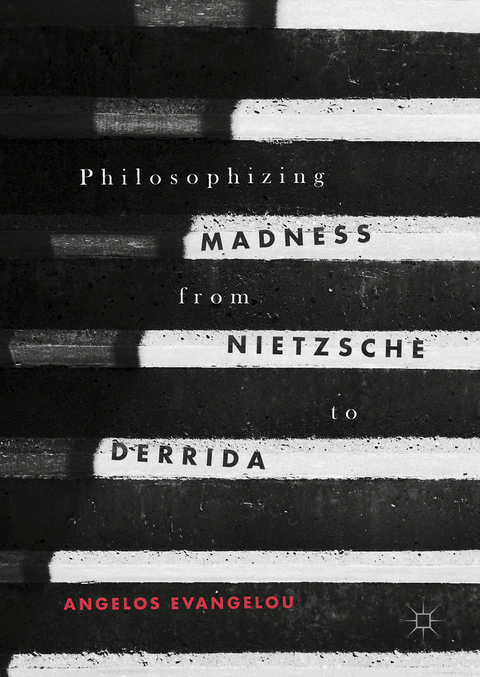
Philosophizing Madness from Nietzsche to Derrida
Springer International Publishing (Verlag)
978-3-319-57092-1 (ISBN)
Drawing connections between madness, philosophy and autobiography, this book addresses the question of how Nietzsche's madness might have affected his later works. It also explores why continental philosophy after Nietzsche is so fascinated with madness, and how it (re)considers, (re)evaluates and (re)valorizes madness. To answer these questions, the book analyzes the work of three major figures in twentieth-century French philosophy who were significantly influenced by Nietzsche: Bataille, Foucault and Derrida, examining the ways in which their responses to Nietzsche's madness determine how they understand philosophy as well as philosophy's relation to madness. For these philosophers, posing the question about madness renders the philosophical subject vulnerable and implicates it in a state of responsibility towards that about which it asks. Out of this analysis of their engagement with the question of madness emerges a new conception of 'autobiographical philosophy', which entails the insertion of this vulnerable subject into the philosophical work, to which each of these philosophers adheres or resists in different ways.
Angelos Evangelou is Associate Lecturer in Comparative Literature at the University of Kent, UK. His other publications include works on Bataille and the ‘ethics of violence’, the aesthetic of the “mad” and the problem of empathy in Anna Kavan. His current research project is in border studies and Cypriot literature.
Chapter 1: The 'Nietzsche Event': Madness and the Limits of Becoming.- Chapter 2: Georges Bataille: Madness and the 'Ethics of Vulnerability'.- Chapter 3: Michel Foucault: Madness and Philosophical Incapacity.- Chapter 4: Jacques Derrida: Philosophy Opens Up to Madness.- Conclusion: Responding to Madness: 'Autobiographical Philosophy'.
"Philosophizing Madness, is an impressive feat of scholarly erudition. Evangelou, though a lecturer in Comparative Literature, has produced a work on an intense philosophical character debating one of the more crucial questions in contemporary Continental philosophy (in its French form)." (Guilel Treiber, Metapsychology Online Reviews, Metapsychology.Mentalhelp.net, Vol. 22 (15), April, 2010)
“Philosophizing Madness, is an impressive feat of scholarly erudition. Evangelou, though a lecturer in Comparative Literature, has produced a work on an intense philosophical character debating one of the more crucial questions in contemporary Continental philosophy (in its French form).” (Guilel Treiber, Metapsychology Online Reviews, Metapsychology.Mentalhelp.net, Vol. 22 (15), April, 2010)
| Erscheinungsdatum | 01.09.2017 |
|---|---|
| Zusatzinfo | IX, 286 p. 6 illus. |
| Verlagsort | Cham |
| Sprache | englisch |
| Maße | 148 x 210 mm |
| Gewicht | 514 g |
| Themenwelt | Geisteswissenschaften ► Philosophie ► Geschichte der Philosophie |
| Geisteswissenschaften ► Philosophie ► Philosophie der Neuzeit | |
| Schlagworte | autobiographical philosophy • Conceptual Framework • Ecce homo • Existentialism • Georges Bataille • Jacques Derrida • Masks • Michel Foucault • modern philosophy • Modern philosophy: since c 1800 • Nietzsche event • Phenomenology & Existentialism • Phenomenology & Existentialism • Philosophy • Philosophy of Man • Philosophy of mind • Religion and Philosophy • Social & Political Philosophy • Social Philosophy • Social & political philosophy |
| ISBN-10 | 3-319-57092-7 / 3319570927 |
| ISBN-13 | 978-3-319-57092-1 / 9783319570921 |
| Zustand | Neuware |
| Haben Sie eine Frage zum Produkt? |
aus dem Bereich


